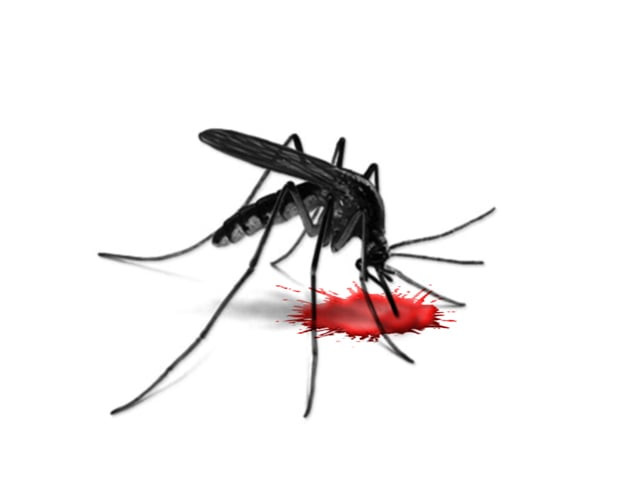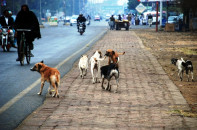‘Anti-mosquito sprays, precautions little help’
WHO expert says cleaning breeding sites could help control dengue.

The dengue fever outbreak in Punjab is unlikely to be controlled by the anti-mosquito spray and awareness campaign of the Health Department, a World Health Organisation (WHO) expert adviser and researcher told The Express Tribune.
Dr Muhammad Aslam Khan, who has published at least 250 papers on dengue fever in international journals, said anti-mosquito sprays were of little help in fighting dengue. He said if the major breeding sites of the mosquitoes that caused the fever were identified and cleaned, the outbreak could be controlled in a matter of days.
A Health Department spokesman rejected the suggestion that the spray and awareness campaign would not be effective. He said the precautions suggested by the department and spray campaign were effective measures.
Dr Khan said that the perception that the mosquito bred in clean drinking water was not accurate. He said there was no danger of the mosquito laying eggs in potable water containers, even if they were left uncovered for a week. He said the mosquito laid eggs at places where there was some food for it. “These may include empty soda bottles, tree holes, containers, tyres, water tanks and mud pots,” he said. Dr Khan said the eggs could stay in these places for weeks and in some cases even months without damage. “They hatch when rainwater enters these spaces in the wet season,” he said.
There are two major types of mosquitoes responsible for spreading dengue fever: Aedes-aegypti and Aedes-albopitus.
He said most officials conducting the spray and awareness campaign were unfamiliar with the virus. He said the precautionary measures being advertised by the department were mostly inaccurate.
Contrary to what the Health Department prescribes, he said, early morning and evening were not the high risk hours. He said the mosquito was active from early morning till the afternoon, with 2 pm being the peak time.
Dr Khan said Lawrence Gardens and Governor’s House had lots of trees and could be among the major breeding sites of the mosquito in the city. He said underground sewers and graveyards were also perfect places for these mosquitoes to breed.
He said the tyres on trucks and buses were one of the major carriers of the eggs. “Mosquitoes lay eggs in small spaces in these tyres. As they are used on roads, water enters into the spaces, causing the eggs to hatch,” he said.
Dr Khan said dengue had earlier erupted in the region immediately after Partition but was controlled before it could cause much damage.
The Health Department has recorded at least 44 dengue fever cases in the city in the last seven months. The spokesman said there was only one death in these cases. He said two more cases were reported on Tuesday.
Published in The Express Tribune, August 11th, 2011.



















COMMENTS
Comments are moderated and generally will be posted if they are on-topic and not abusive.
For more information, please see our Comments FAQ